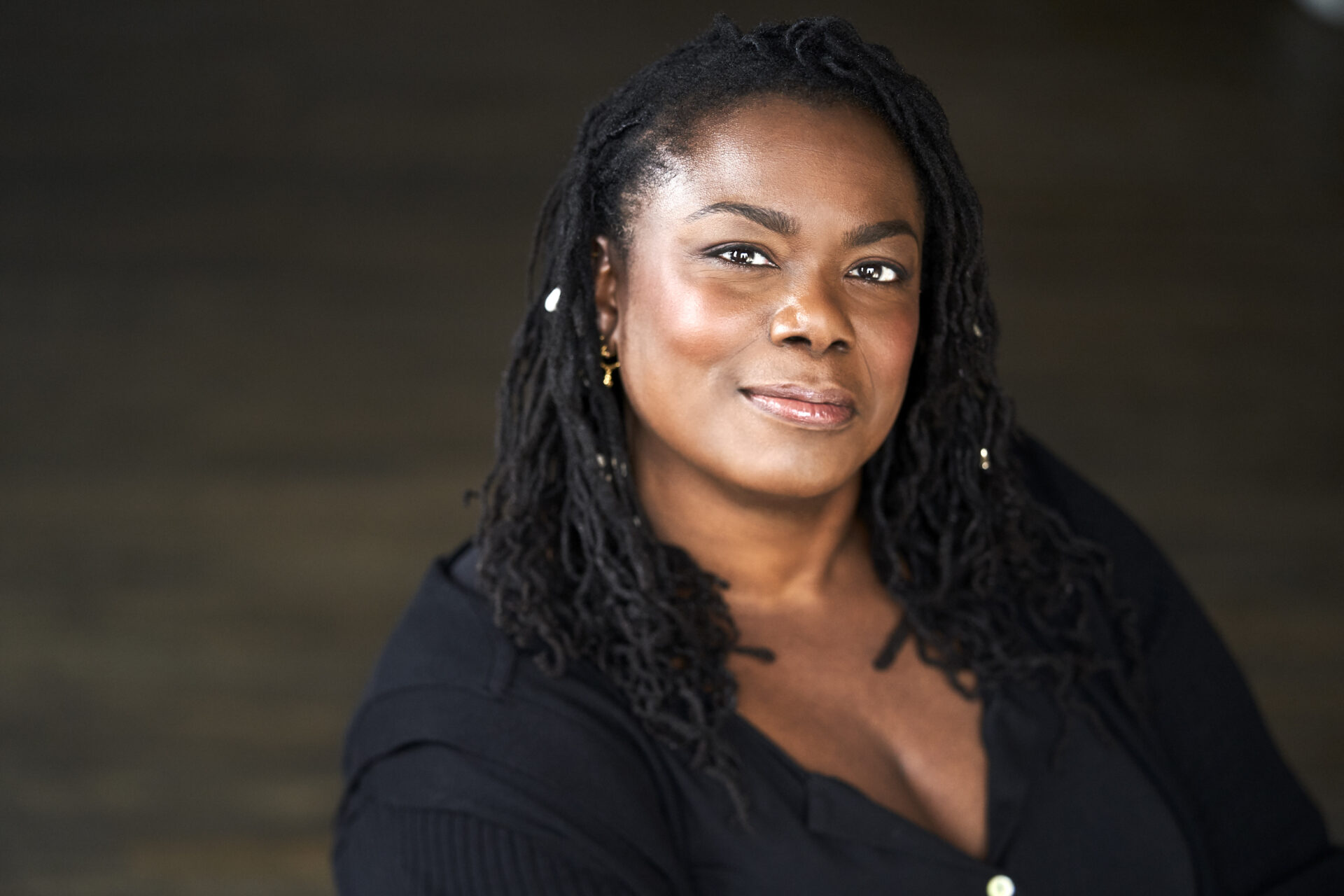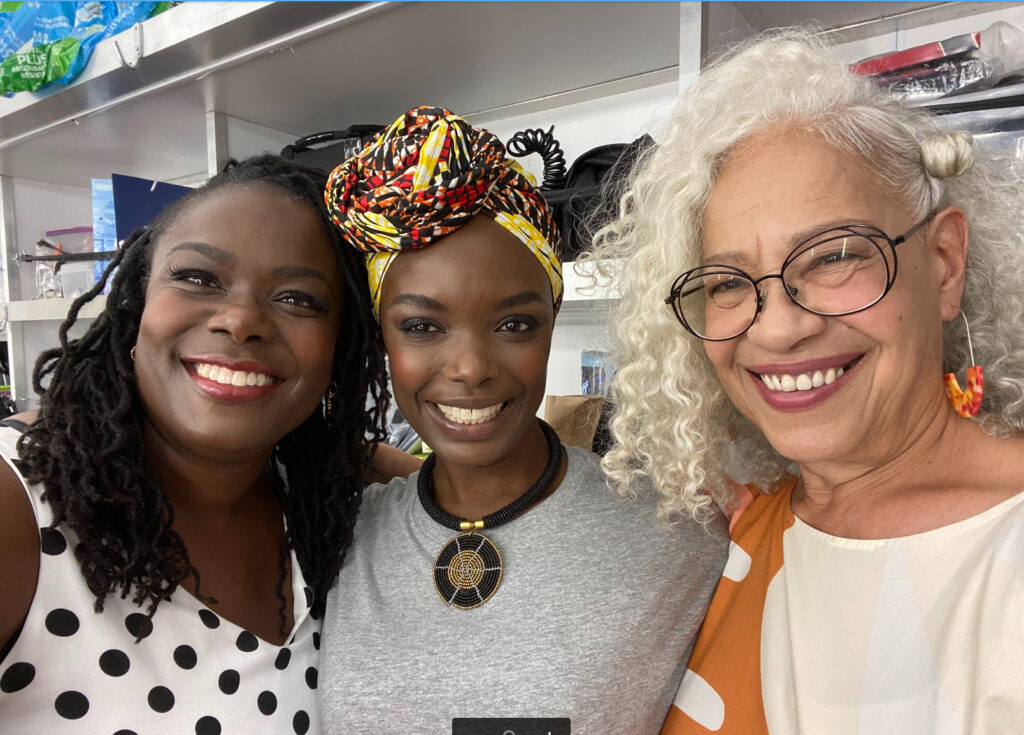
A career in policing for a Black woman leads to liberation—and a new business.
Powered by Liisbeth Media. Written by pk mutch
As a child, Toronto-born Keda Edwards Pierre wanted to do something many intelligent, artistic kids dream of doing; create buildings.
“In elementary school, I wanted to be an architect. I was recognized to be very creative. My grandfather was an architect,” says Edwards Pierre. “Plus, lines and structure really attracted me.”
However, the universe had other plans. Instead, Edwards Pierre a childhood trauma survivor, navigated a career path that met her profound needs for safety, structure, answers, voice and ability to advocate for others. That path would take her from student to frontline police officer, to community liaison officer and, finally, to entrepreneur –a journey which, for her, is ultimately “true to soul”.
“Bad things happened in my life. The impact showed up in a number of ways.
In Grade 10, my typically good grades suddenly started to plummet– I saw my dreams of architecture (school) go down the tubes,” Edwards Pierre explains. “I often found escape through arts. During this time, I increasingly turned my attention to theatre and drama and ended up getting a lead part in the school play.
Edwards Pierre says she was excited about new emerging theatrical success–until playing the lead part meant having to kiss a boy on stage– an idea that made her so ill and uneasy that she gave up theatre for a time. Panning around for a new direction–one that would allow her to feel more empowered – Edwards Pierre turned her attention to law, a career which matched her passion for “advocacy, helping people and argumentative nature”.
“I developed a keen interest in the justice system. It led me to take a paralegal course in college after high school,” says Edwards Pierre. “Then one day, my class visited a courthouse to observe court proceedings, after which two classmates and I met two off-duty court officers. We later hung out. One of them advised that police were hiring and suggested that I join as a better path to law school than the paralegal path.
“I did some research and realized he was right.”
Sold on the idea, Edwards Pierre applied for a job with the Toronto Police, a much bigger feat than such a short sentence implies. This was the 1990’s a time when only 6% of Toronto Police were women, let alone women of colour like Edwards Pierre, and although some things have changed since then, even today policing in Canada is still overwhelmingly white male dominated.
“I had never seen a Black woman in uniform,” says Edwards Pierre. “Plus I was considered short, just five foot five (inches), but I applied and was accepted. There were approximately 150 Toronto recruits and approximately 20 were women. I was the only Black woman.”
Over the next 27 years, Edwards Pierre would go on to hold a variety of roles with the Toronto Police Service (TPS), including court officer, parking enforcement, and eventually, a first class police officer across the city, including 42 Division which serves Scarborough, a suburb on the edge of Toronto where 73% of the population are non-white and the majority of residents are newcomers.
Edwards Pierre at one point, went on maternity leave.
Around the same time, “After nearly 10 years with TPS, I remembered my earlier law aspirations. I applied to the Weldon Law School at Dalhousie (University)–and got in!” says Edwards Pierre. “So, at 28, while on maternity leave, I packed up my still breast-feeding baby and went to Halifax to get my law degree.”
Turned out that being a single mother, alone in a city with no family, little money for food and with a baby who had health issues, and pursuing my law degree was too much. After one year, I packed up, returned to Toronto and my baby’s medical specialists. I completed first-year law remotely andreturned from leave to police work.”
Perspectives on Police Work
As a child, Edwards Pierre says her interactions with police while growing up were not negative. Once on the inside, however, Edwards Pierre saw things that deeply troubled her. “I witnessed how trauma impacts human potential and can destroy lives,” she says. “I saw the institutional flaws and systemic challenges that prevent police from dealing with issues in helpful ways. ‘Bad cops’ remain protected and fly under the radar and ‘good cops’ get gutted, chewed up and spat out.”
“While on the job, various misogynistic and racist officers in the ranks, management and command kept me in hyper-vigilance mode for much of my career – so I was in constant fight or flight positioning. Sometimes I won the battles I fought – and sometimes I lost miserably.”
Edwards Pierre adds “The system is far, far from perfect–however, there are good things happening between the cracks. While working in 42 division, I saw myself as part of the community. I had a great partner who loved his job.” Edwards Pierre saw how deeply connected, community-supported policing and strong community ties resulted in positive outcomes.
Despite the growing societal concerns around racism and police violence, Edwards Pierre held on to the idea that the institution could change for the better and went on to become a Corporate Liaison Officer for three years with a focus on improving Black community-police relations. “I coordinated the first month-long Black History Month celebration while in that role. I consulted with and brought community organizations and institutions together from all over the city for the first time. I also coordinated the United Mothers Opposing Violence Everywhere (U.M.O.V.E), a nonprofit which advocated for stronger gun control after the 2005 “Summer of the Gun”.
Edwards Pierre was also a founding member of the TPS Black Internal Support Network. “I believe I had a positive impact, but over time, I realized there was only so much I could do.”
Edwards Pierre retired in 2020. “My experience in policing, good, bad and even the ugly. was part of my path. It opened my eyes and showed me what I needed to see,” she says. “It prepared me for what I believe is the work I am now called to do.”
“For so many years, I hid a scared girl behind a fierce advocate for others. It felt easier to scream for others than myself.”

Enter True2Soul
“Something like seventy percent of us have been traumatized in one way or another. There are up to 19 different recognized areas of trauma. So if we are looking at that, and looking at how messed up our systems are, we have a lot of people inside and outside institutions who have unresolved shit and therefore, can and doperpetrate harm. Through my own lived experience, I have learned people have to heal themselves before they can heal systems. Today, I feel I am called to work with healing people”. So, Edwards Pierre started a company.
True2Soulis a hybrid, digital platform-style enterprise that offers safe & inclusive workshops for Black women and gender diverse folks who have experienced sexual trauma. Clients are looking to heal, be part of a discrete, supportive community, and ultimately transform their lives, relationships and career prospects. True2Soul also creates customized treatment plans, and curates a directory of trauma-informed and allied services—all reviewed, researched and vetted by Edwards Pierre and her small team.
Their signature 12-week Chrysalis Program which launches in May, is supported by a suite of Canadian and international program delivery collaborators. “We offer a multidisciplinary, non-judgement-based approach” says Edwards Pierre, “but what really makes our work stand out is the fact that our program is informed by lived experience few other folks have.
I have had to learn how to cope and deal with my own complex trauma, and know the flaws of the system. My personal experience and what I have witnessed in policing-both on the street and within the institution–have provided me with a deep understanding of what’s lacking and even harmful for survivors in the way of support”.
Edwards Pierre adds “I have also been supporting sexual trauma survivors for years. I’ve trained as a certified holistic health and mindfulness specialist, life coach and trauma recovery coach. I am also an ordained Minister.
While Edwards Pierre is new to entrepreneurship and venture building, she is optimistic that with the help of programs like Fifth Wave, she will figure it out.
As we end the interview, Edwards Pierre takes a slow sip of her iced tea, puts down her cup, and rolls up her sleeves to reveal matching forearm length tattoos on both arms. “These tattoos remind me to be true to the essence of who we are. They anchor me when I feel offside. The bottom line. I am committed to building out True2Soul. This is who I am. I know this is where I am supposed to be. There are just not a lot of therapists out there doing this work who have also been in policing. And I know the word “police” is a powerful trigger for many people. But I also know that what I have learned, on the inside, in the streets, is unique, authentic, real and therefore, powerful.”
Fifth Wave , CFC Media Lab’s feminist business accelerator, has teamed up with media partner, LiisBeth — a womxn-led and owned intersectional feminist media enterprise — to showcase its program participants and their companies. Throughout 2022, Liisbeth will feature the women founders, and their businesses, who are participating in the Fifth Wave program, a CFC Media Lab initiative. Read Liisbeth’s monthly digital magazine for feminist entrepreneurs or check this page monthly to learn more about the inspirational women who are choosing to develop their companies by employing feminist business practices.
Fifth Wave is funded in part by the Government of Canada through the Federal Economic Development Agency for Southern Ontario.
Share this post: